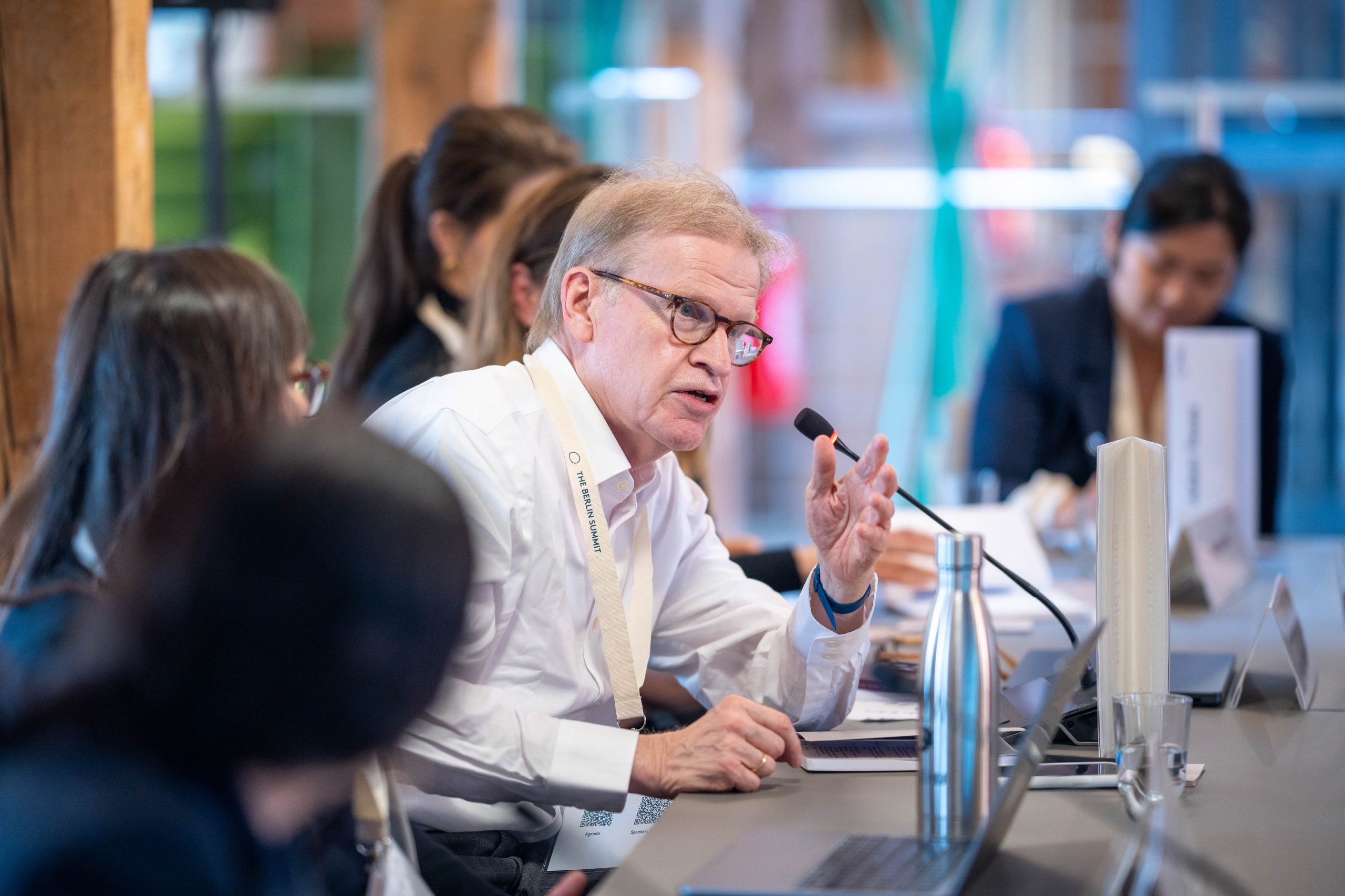NEW PARADIGM
The Berlin Summit 2025: The Berlin Declaration – Making sense of a maturing consensus in times of disorder
At the opening of the Berlin Summit 2025, key thought leaders reflected on the development and relevance of the Berlin Declaration one year after its publication.
BY
FORUM NEW ECONOMYPUBLISHED
20. JUNE 2025
The opening session—marked by historical analogies, political self-criticism, and strategic questions for the future—posed a central guiding question: Can a growing consensus in economic policy provide orientation in times of increasing polarization, geopolitical uncertainty, and social tension—or is it already failing the reality check?
The keynote address revisited the original intention behind the first Berlin Summit in 2024: to make a new school of economic thought visible, to foster interdisciplinary connections, and to formulate this vision in politically accessible terms through the Berlin Declaration. But by now, it had become clear: many of the initial hopes have (so far) not been fulfilled. “We wanted to win back the people and we didn’t succeed, or somebody else succeeded” was one of the key self-assessments.
One speaker situated the current moment in a broader historical narrative: the period between the 2007 financial crisis and the 2016 election of Donald Trump could be understood as a kind of “interwar decade”—comparable to the turbulent transitional period after 1914. It is a time when old orders erode, new paradigms are tentatively explored, and the political landscape fragments. “Perhaps we are not at the end, but still in the midst of the search—and that process has now been interrupted or challenged.”
In this context, the Berlin Declaration gains new relevance—not as a blueprint, but as an open frame of reference. Yet it must also confront its blind spots. For instance, the topic of migration had only been mentioned in passing the previous year. This year, two full sessions were devoted to it—evidence of a learning process in motion.
A central theme of the discussion was the growing loss of trust in democratic institutions—often driven by gaps in essential public services. Participants were reminded: “It’s not all about industrial policy. It’s about family doctors, schools, and affordable housing.” These everyday concerns are what hold societies together—not only major transformation agendas.
Technological solutions were also discussed—such as telemedicine, digital education, and decentralized energy. But one speaker emphasized: these must be accompanied by social policy measures. “It’s not just about whether a technology exists—but whether people can actually access and use it.”
Another speaker drew on experience in government and campaigning, identifying three destructive myths currently undermining progressive politics:
-
The fiscal myth (that no investments can be made despite multiple crises);
-
The price myth (that climate policy only drives up everyday costs);
-
The trickle-down myth (that tax cuts are a recipe for growth).
The speaker concluded: “We’ve spent too long trying to explain misunderstandings. But this is no longer about misunderstandings—it’s about power.” What is needed now is to proactively shape narratives and to openly engage in political struggles over justice, investment, and social cohesion.
The overall impression remained: the Berlin Declaration continues to matter—not despite growing turbulence, but because of it. Yet its success depends on whether it can be further developed, specified, and politically defended as a dynamic frame of reference.
